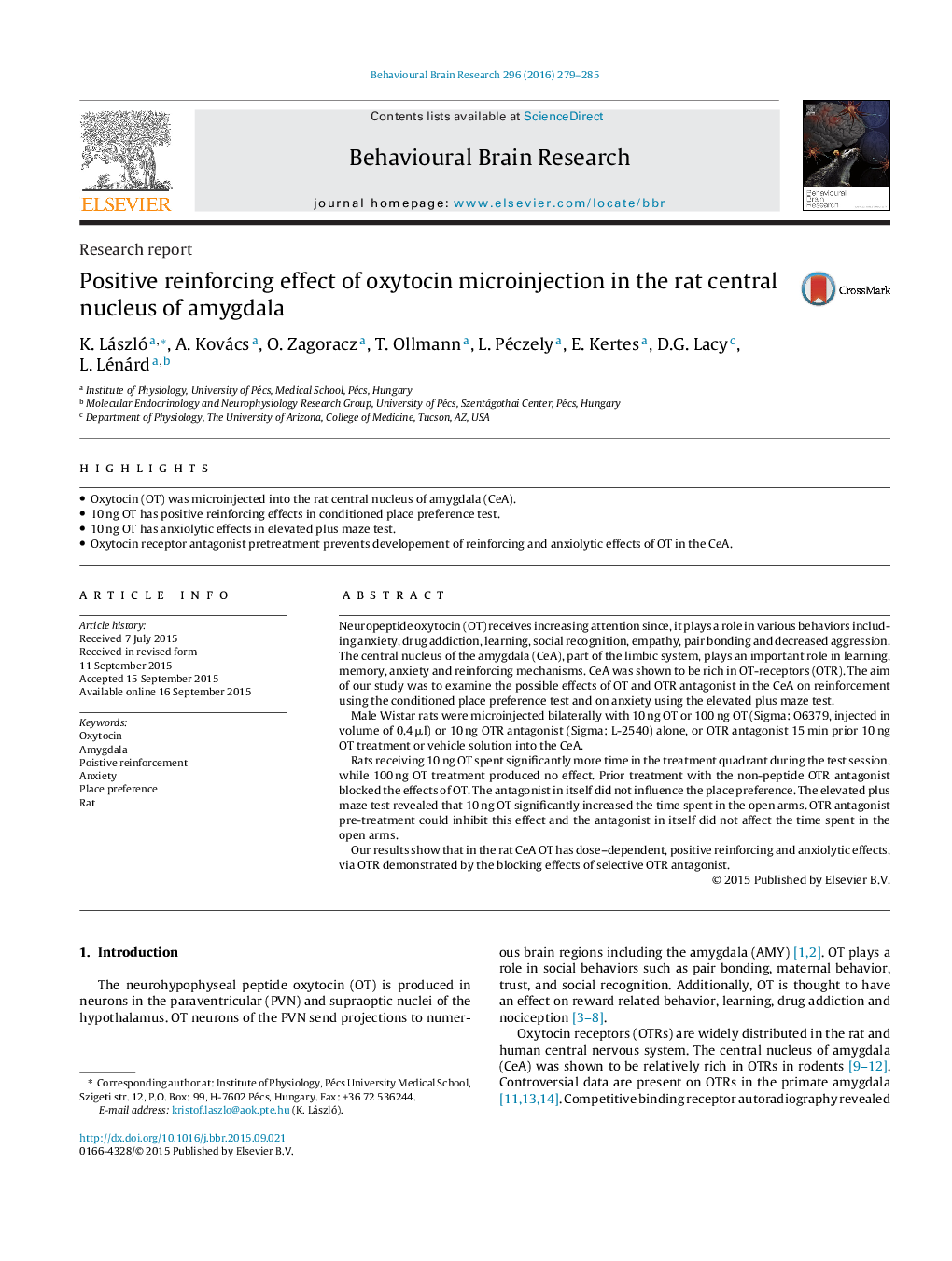| Article ID | Journal | Published Year | Pages | File Type |
|---|---|---|---|---|
| 4312339 | Behavioural Brain Research | 2016 | 7 Pages |
•Oxytocin (OT) was microinjected into the rat central nucleus of amygdala (CeA).•10 ng OT has positive reinforcing effects in conditioned place preference test.•10 ng OT has anxiolytic effects in elevated plus maze test.•Oxytocin receptor antagonist pretreatment prevents developement of reinforcing and anxiolytic effects of OT in the CeA.
Neuropeptide oxytocin (OT) receives increasing attention since, it plays a role in various behaviors including anxiety, drug addiction, learning, social recognition, empathy, pair bonding and decreased aggression. The central nucleus of the amygdala (CeA), part of the limbic system, plays an important role in learning, memory, anxiety and reinforcing mechanisms. CeA was shown to be rich in OT-receptors (OTR). The aim of our study was to examine the possible effects of OT and OTR antagonist in the CeA on reinforcement using the conditioned place preference test and on anxiety using the elevated plus maze test.Male Wistar rats were microinjected bilaterally with 10 ng OT or 100 ng OT (Sigma: O6379, injected in volume of 0.4 μl) or 10 ng OTR antagonist (Sigma: L-2540) alone, or OTR antagonist 15 min prior 10 ng OT treatment or vehicle solution into the CeA.Rats receiving 10 ng OT spent significantly more time in the treatment quadrant during the test session, while 100 ng OT treatment produced no effect. Prior treatment with the non-peptide OTR antagonist blocked the effects of OT. The antagonist in itself did not influence the place preference. The elevated plus maze test revealed that 10 ng OT significantly increased the time spent in the open arms. OTR antagonist pre-treatment could inhibit this effect and the antagonist in itself did not affect the time spent in the open arms.Our results show that in the rat CeA OT has dose–dependent, positive reinforcing and anxiolytic effects, via OTR demonstrated by the blocking effects of selective OTR antagonist.
